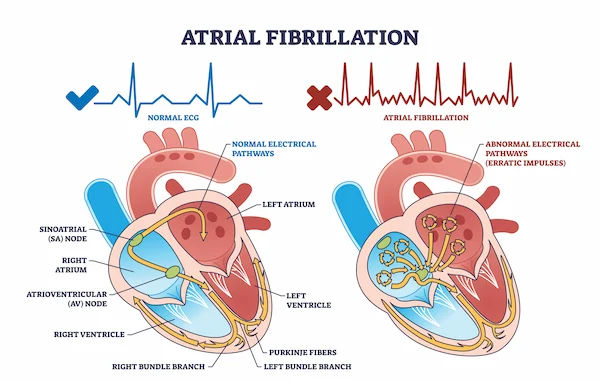- Female
- 34 Years
- 29/01/2025
I'm wondering if a blood pressure reading of 113 over 81 is considered normal. My diastolic seems to fluctuate between 81 and 90 and I'm noticing that my systolic always tends to stay on the lower side. Could you give me some insight into whether this is something I should be concerned about or if it's within a normal range?
Answered by 1 Apollo Doctors
Blood pressure of 11381 is considered normal. Diastolic blood pressure fluctuating between 81-90 is still within normal range. It is common for diastolic blood pressure to fluctuate slightly. As long as your systolic blood pressure remains on the lower side and within normal range, there is usually no cause for concern.
Dr. Shubham Suggests...
Consult a Cardiologist
Answered 04/07/2025
0
0

More Cardiology Health Queries
View allI've recently got my test results back, and they mentioned that my cholesterol levels aren't great. The ECG report also showed something called a Left axis deviation. I'm feeling a bit concerned and would love to understand what this could mean for my health and if there's anything I should be doing about it. Is it something serious? What steps should I take next, and could lifestyle changes make a difference here?
For high cholesterol levels, you can start taking Atorvastatin (brand name Lipitor) at a dose of 10-20 mg once daily. This medication helps lower cholesterol levels in the blood. As for the left deviation axis on your ECG report, it could indicate various underlying heart conditions. It would be best to follow up with a cardiologist for further evaluation and management.
Answered by 1 Apollo Doctors
I'm a 54-year-old guy and I've been told I need a heart pacemaker. So, before I go for it, I want to know all the details. Like, how does this thing actually work? What kind of care do I need after getting one? Is it going to be comfortable to live with? And most importantly, should I be worried about any side effects from having a pacemaker?
A pacemaker is a small device that's placed in the chest or abdomen to help control abnormal heart rhythms. It uses electrical pulses to prompt the heart to beat at a normal rate. You may need a pacemaker if your heart beats too slowly, too quickly, or irregularly. After getting a pacemaker, you should avoid vigorous activities that could damage the device. It's important to attend regular follow-up appointments with your doctor to ensure the pacemaker is working properly. Most people find living with a pacemaker to be comfortable and are able to resume normal activities. However, you should avoid certain activities that can interfere with the pacemaker, such as using certain medical devices or undergoing certain medical procedures. Common side effects of a pacemaker include infection at the site of implantation, bleeding, bruising, or swelling. In rare cases, there may be complications such as a collapsed lung or a punctured blood vessel during the implantation procedure. It's important to discuss any concerns with your healthcare provider.
Answered by 1 Apollo Doctors
I'm really worried about my grandma. She had a heart attack last week and she's still being treated. Do you think it's absolutely necessary for her to have angioplasty?
Visit Physician for evaluation and appropriate management
Answered by 1 Apollo Doctors
Disclaimer: Answers on Apollo 247 are not intended to replace your doctor advice. Always seek help of a professional doctor in case of an medical emergency or ailment.




.webp)
